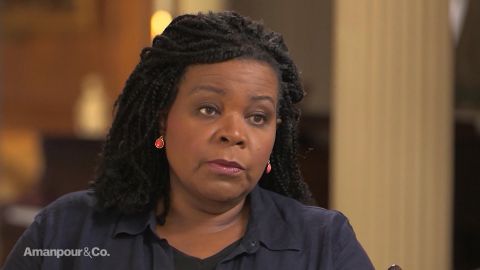Read Transcript EXPAND
MCGUINNESS: Well, look I’ve had a chill about Brexit since the vote. Let’s be frank, this has been a very difficult time. We had hoped at this stage to at least have an agreement with the United Kingdom. In fact, we have an agreement with the United Kingdom. But as you know, yesterday, and your summary was so accurate, the British prime minister facing defeat decided not to put this agreement to the vote. So, when you say I have more of a chill now because we’re facing potentially into a no deal scenario, of course, I’m concerned about it but it was never off the table. And I think many of us, indeed our own government and the commission, have been looking at all of the possible scenarios.
Clearly, what we want is an agreement and an orderly Brexit but we have also been mindful to say to our businesses, our universities, anyone who is impacted by this, which is every sector, that they must look at the possibilities of a no deal while all the time working towards trying to reach an agreement. So, it may be because we’re closer to that moment where perhaps, you know, taking it a little bit more as a possibility than we had done six months ago. But frankly, at this stage we’re still hoping despite yesterday that we can get to a place where the House of Commons will have a meaningful vote and support the agreement that’s on the table, because it was negotiations in good faith between the European Union and the British prime minister.
AMANPOUR: So, to that end, you’re still hoping that Donald Tusk, who’s the European Council president, tweeted just now, “Long and frank discussion with Prime Minister Theresa May ahead of Brexit Summit,” and that we said was for Thursday, “Clear that E.U. 27 wants to help. The question is how.” So, let me just put it to you. How can the E.U. help if it so inclined to do as he says it is?
MCGUINNESS: Well, we are inclined to help and have been right from the get-go of this process. If you listened carefully yesterday to the prime minister’s speech in the House of Commons, which was interrupted on many occasions, she was at pains to say she would seek reassurance on issues and in particular, on the backstop which relates to the border or the invisible border between Northern Ireland and Ireland, and I represent all of the counties along invisible borders. So, it’s quite personal and political for me when I speak about this. So, the reassurances I expect are around suggestions that we’ll also want to make sure that the backstop doesn’t have to be used, what we want is that we agree a very strong partnership with the United Kingdom and that we do it in a timely fashion. Now, I think we can make all of those positive noises and I expect there are people working on the text of those issues like side bar declarations and reassurances. Where I have some concern is will this be sufficient to persuade very disparate views in the House of Commons who are united against this agreement to actually support us. And on that question, that’s where my concerns are.
About This Episode EXPAND
Christiane Amanpour speaks with Mairead McGuinness about Brexit; and Margot Robbie about her role as Elizabeth I in “Mary Queen of Scots.” Walter Isaacson speaks with Annette Gordon-Reed about what she calls “the American dilemma.”
LEARN MORE


